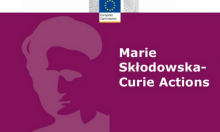
STEM education
Discover how our research explores how maths and science learning across different age groups and settings can be improved.
Our research
Our research focuses on how to improve maths and science learning across different age groups, in both formal (e.g. school, university, workplace) and informal (e.g. parent-child conversation, museum visits) settings.
This group examines underlying principles (e.g., spatial thinking, vocabulary) that can lead to greater gains in scientific knowledge and explores participation in STEM education at degree level and in the workplace.
It focuses on the following questions:
What are the predictors of mathematics and spatial achievement?
- Do spatial thinking, memory, and language influence mathematics achievement?
- How do affective predictors like mathematics anxiety influence mathematics achievement?
- Do early home factors like mathematical play and spatial language exposure influence achievement?
- Does achievement differ in typically and atypically developing populations?
How can we increase women’s participation in maths and science?
- Do parents talk differently to girls and boys about science?
- Can we develop mentorship programmes for women in science?
- Can interactivity overcome mathematics anxiety in women university students?
How can we increase science understanding?
- How do field trips increase understanding about evolution in GCSE students?
- Can an app increase preschool children’s science learning?
Funders
Our research has been funded by the following organisations.


